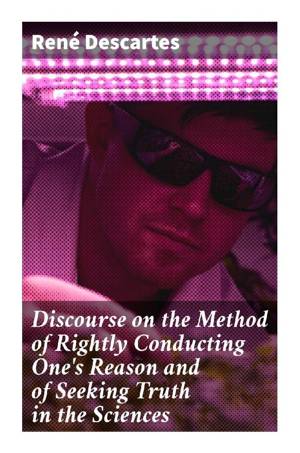
Door een staking bij bpost kan je online bestelling op dit moment iets langer onderweg zijn dan voorzien. Dringend iets nodig? Onze winkels ontvangen jou met open armen!
- Afhalen na 1 uur in een winkel met voorraad
- Gratis thuislevering in België vanaf € 30
- Ruim aanbod met 7 miljoen producten
Door een staking bij bpost kan je online bestelling op dit moment iets langer onderweg zijn dan voorzien. Dringend iets nodig? Onze winkels ontvangen jou met open armen!
- Afhalen na 1 uur in een winkel met voorraad
- Gratis thuislevering in België vanaf € 30
- Ruim aanbod met 7 miljoen producten
Zoeken
Discourse on the Method of Rightly Conducting One's Reason and of Seeking Truth in the Sciences
René Descartes
Paperback | Engels
€ 7,95
+ 15 punten
Omschrijving
In "Discourse on the Method of Rightly Conducting One's Reason and of Seeking Truth in the Sciences," René Descartes embarks on a profound exploration of epistemology and methodology, laying the foundations for modern philosophy. Written in a clear and accessible prose, the text articulates Descartes' famous method of doubt, alongside his cogito argument-"I think, therefore I am"-which unfolds as the cornerstone of his rationalist philosophy. Descartes navigates through the complexities of human reason and the pursuit of scientific knowledge, positioning himself in the intellectual context of the 17th century, where scientific inquiry began to challenge traditional scholastic teachings and embrace new methodologies. René Descartes, often referred to as the father of modern philosophy, was deeply influenced by the turbulent intellectual climate of his time, including the works of Galileo and ancient philosophers. Driven by a quest for certainty in knowledge, he sought to establish a new foundation for the sciences through rigorous doubt and clear reasoning. His interdisciplinary background in mathematics and philosophy informs this work, revealing his commitment to integrating analytical techniques with philosophical inquiry. For students, scholars, and any seekers of truth, Descartes' "Discourse on the Method" remains an essential read, as it illuminates the principles of critical thinking and the importance of rational inquiry. It not only challenges readers to examine the validity of their beliefs but also invites them to engage with the philosophical debates that continue to shape our understanding of science and reason today.
Specificaties
Betrokkenen
- Auteur(s):
- Uitgeverij:
Inhoud
- Aantal bladzijden:
- 44
- Taal:
- Engels
Eigenschappen
- Productcode (EAN):
- 9788027284221
- Uitvoering:
- Paperback
- Afmetingen:
- 152 mm x 229 mm
- Gewicht:
- 81 g

Alleen bij Standaard Boekhandel
+ 15 punten op je klantenkaart van Standaard Boekhandel
Beoordelingen
We publiceren alleen reviews die voldoen aan de voorwaarden voor reviews. Bekijk onze voorwaarden voor reviews.











